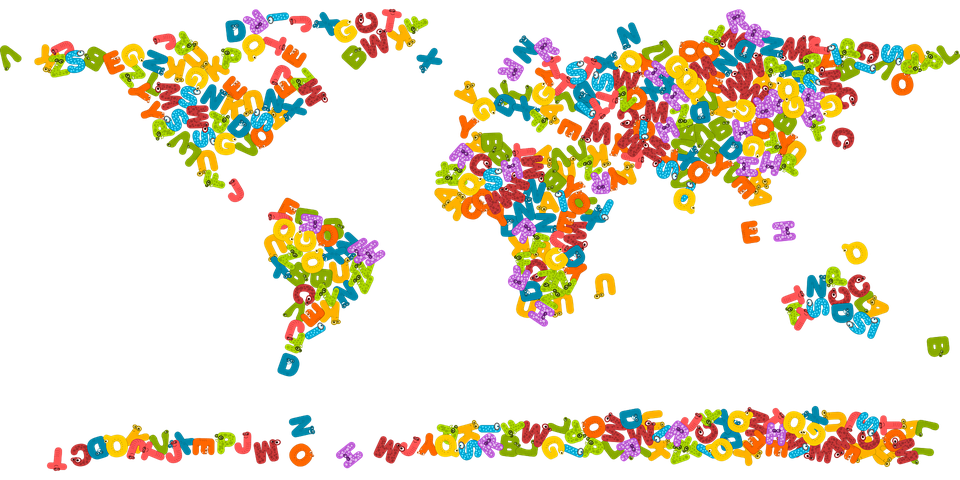Welcome to the Age of Decentralization, Part 3: In Which I Predict More Stuff
cryptocurrencies·@lesliestarrohara·
0.000 HBDWelcome to the Age of Decentralization, Part 3: In Which I Predict More Stuff
<center></center> # As promised in my last post, here are my predictions for Education, Healthcare, Lifestyles, and more in the Age of Decentralization. # Keep in mind, I'm not a psychic. I'm just a person who is fascinated with these trends and trying to keep my finger on the pulse of the future. These are my "best guesses" for where we are heading, given the information currently available to me and the trends I've picked up on over the past few years. This is Part 3 of my Welcome to the Age of Decentralization series. Here are the first two parts: <a href="https://steemit.com/life/@lesliestarrohara/welcome-to-the-age-of-decentralization-part-1">Welcome to the Age of Decentralization, Part 1</a> <a href="https://steemit.com/freedom/@lesliestarrohara/welcome-to-the-age-of-decentralization-part-2-here-have-some-predictions">Welcome to the Age of Decentralization, Part 2: Here, Have Some Predictions</a> # Education # <center></center> Interestingly, education is one of the spheres of human pursuit that has already begun to change dramatically due to decentralization trends. Homeschooling and unschooling are growing in popularity around the world; educational websites and interactive apps like <a href="http://kahnacademy.org">Kahn Academy</a> have proliferated, offering people of all ages the opportunity to learn virtually anything they want for free; and universities are even putting lectures and coursework online, free to the general public. I expect these trends to continue and grow over the next decade. More countries will legalize homeschooling and in places where at home home education is legal, it will become increasingly popular. With such abundant educational tools available online, we will probably see a rise in the offering of home learning options by public and private schools at both the primary and secondary level. These would work similarly to online college courses, but be specifically designed for youth and adherent to the state sanctioned curricula. Another likely development is that of the educational community center--where children can go with or without their parents to pursue their educational interests and take a la carte classes on a flexible schedule. We may also see a rise in corporate or franchised private school operations, catering to poor and lower-middle class parents who want to pull their children out of public school but can't afford traditional private schools. College and university enrollment will drop in many countries as young people begin to see how little value most college degrees offer in relation to tuition prices, and how easy it is to learn outside of school. Many companies will drop their college degree resume requirements in favor of candidates with more life and entrepreneurial experience. This will not occur in countries that offer universal subsidized post-secondary education--and degrees in places like that will become even more worthless than they already are, outside of a few high-demand specialties. # Healthcare # <center></center> Internationally, the healthcare industry is one of the most centralized, bureaucratized boondoggles in existence. Decentralization is about to transform it. The primary trend I have picked up on, that I fully expect to grow in the next few years, is that of <a href="https://www.vice.com/en_us/article/9agk9y/meet-the-pharmaceutical-hacker-trying-to-make-open-source-drugs">pharmaceutical hacking</a>. We live in a time where many medical conditions thought to be untreatable in ages past can be treated with pharmaceutical drugs. Many of these life saving drugs cost mere pennies to make, but due to a highly regulated and collusive market, they are too expensive for most people to afford without insurance. But now that it is possible to manufacture safe, open source pharmaceutical drugs in your garage, I predict that Big Pharma is going to have a hard time maintaining its profit margins. Of course, not everyone has the ability or interest in manufacturing their own medicines, but black market heroes will do it for them. Eventually, doctors offices and pharmacies will offer "print on demand" pharmaceuticals, slashing the prices on these medications. Another revolution is gearing up to explode in the medical insurance industry. Decentralized, blockchain-based insurance-type services will return healthcare decision-making to the hands of individuals. More and more doctors will stop accepting traditional insurance as services like these proliferate. # Lifestyles # <center></center> Young adults have different goals and values today than their predecessors of yesteryear. Digital nomadism, the tiny house movement, co-working, and now "co-living" are already on the rise, and these trends will accelerate. In twenty years time, it will no longer seem unique and wild for a non-retiree to become a perpetual traveler; instead, it will be seen as quite normal. As the availability of services and networks for these lifestyles increase, the cost to travel or "live tiny" will be reduced. Many people will spend at least part of their lives as a digital nomad, and the housing trend will be away from McMansions and toward tiny, mobile dwellings and urban density. # Law and Society # <center></center> This isn't really a prediction, but more like an impassioned hope for the future. Current trends indicate that it *could* happen, but there are many barriers in the way. Here it is: People will stop willingly paying taxes. I know, it's a lot to wish for, but I think it's possible that this could become a reality. Worldwide, people are increasingly fed up with their governments, and that trend is highly unlikely to reverse. Add to that an increase in nomadic lifestyles, a breakdown of trust in the public systems, the newfound ability to bank oneself and keep one's money more or less hidden from government agencies, and an ever-increasing tax burden, and you may find that a lot of people just say "fuck it", and refuse to pay. If this does occur, governments are going to have to change fast or die. A real prediction, though: cryptosecession will become a thing, and decentralized cryptonations will rise to provide citizenship to the involuntarily stateless and the voluntarily unstated. Eventually, some of these cryptonations will grow large enough to be a very serious threat to a some of the world powers. Calamity will ensue, but again, the superstates will be hard pressed to wipe out the influence of millions of individuals in a decentralized organization with no leader, no one to target. It's going to get interesting. # Bonus Predictions # * More DAOs and DACs! In the near future, the decentralized autonomous corporation/organization will become the go-to business structure for international, crypto, and tech companies, as well as non-profit organizations. This will also contribute to the dwindling of tax revenues for states worldwide. * The institution of intellectual property will crumble. You heard it here first! * Cryptocurrencies, the Darknet, and DAOs like <a href="http://openbazaar.com">OpenBazaar</a> will make it extremely difficult to enforce drug laws. ### Well, that's it for this series. As you can probably tell, I'm fairly optimistic about the future and excited to see how the Age of Decentralization will play out. I know a lot of you out there are more pessimistic or guarded in your optimism, and that's okay. It takes all kinds. ### <center></center> ### <center>Hi, I'm Starr!</center> ### <center></center> # <center>I love you, Steemit!</center> #
👍 lesliestarrohara, mindreader, doitvoluntarily, leoumesh, erikaharris, grandpooba, beveryting, ashe-oro, onecesar, justinw, robertandrew, kennyskitchen, tribesteemup, christianfoto, steemnomadic, intothewild, thevote, everittdmickey, sarma, cristof, kafkanarchy84, mattclarke, getonthetrain, lucylin, sebastianbauer, noralynasuncion, alanzheng, kiwisteem, loateam, sonatagreen, allmonkeysbite, chenarchy,